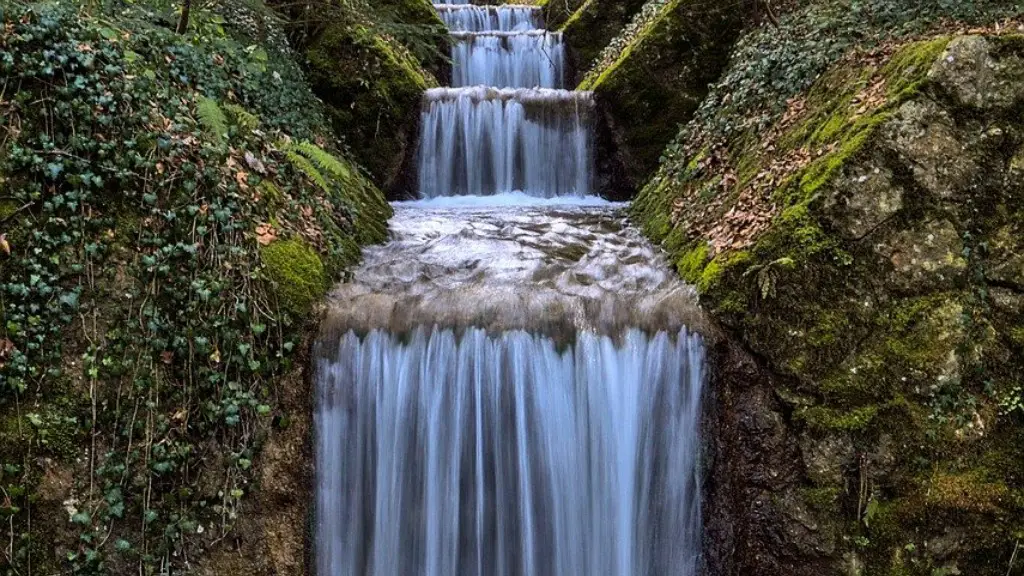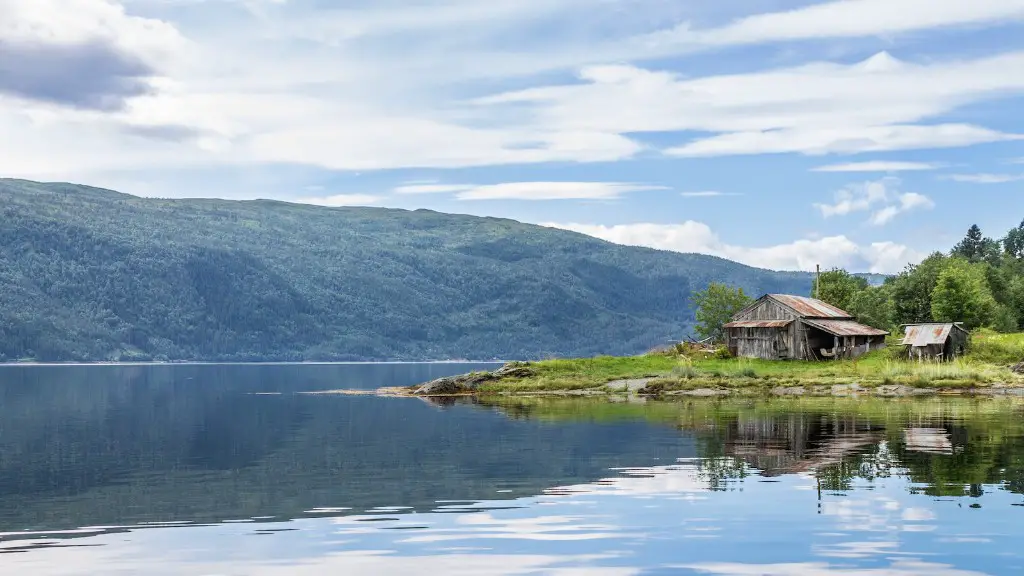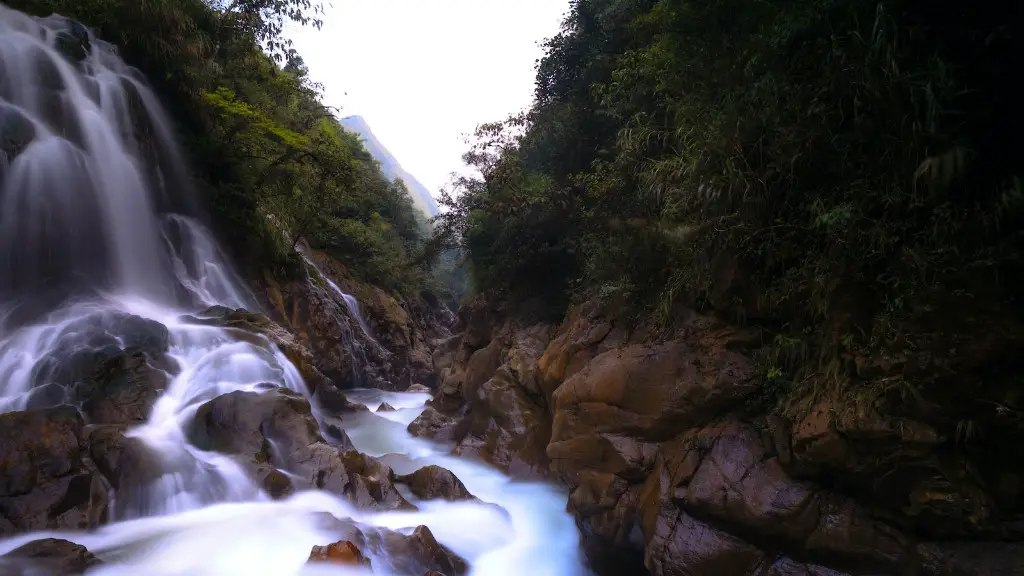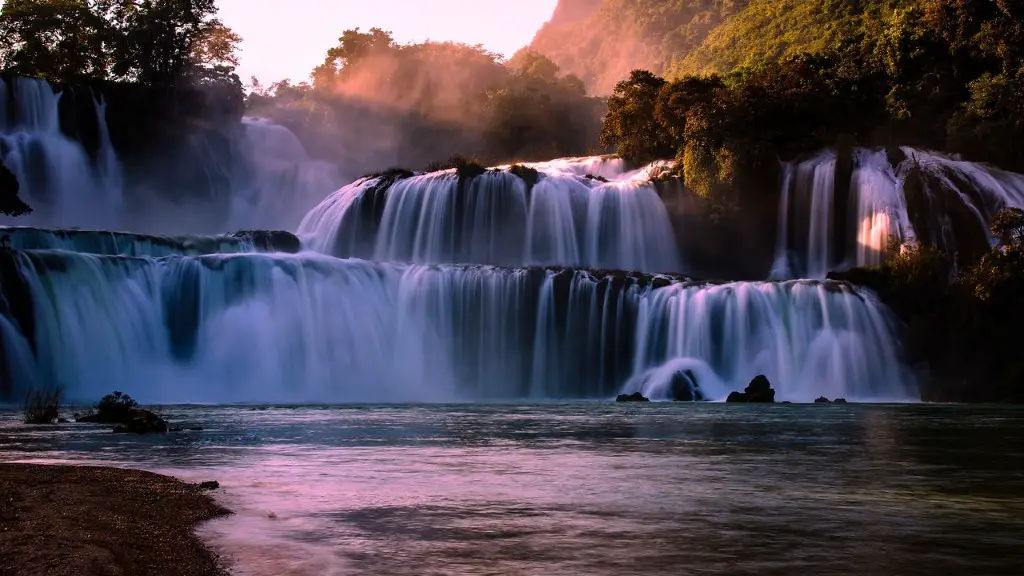How Much Water Does Egypt Get From The Nile River?
The Nile River is the longest on Earth, stretching for over 4,100 miles from its source in the mountains of East Africa to its delta in the Mediterranean Sea. It is one of the most important rivers in Africa, as it is the source of livelihood and sustenance for millions of people living in the area. However, one of the biggest users of the Nile’s water is Egypt. In this article, we will explore how much water Egypt actually gets from the Nile River and what implications this has for the entire region.
Egypt’s dependence on the Nile’s water
Egypt is one of the most arid countries on Earth, and it totally depends on the water that it gets from the Nile River. It relies heavily on the precious resource for a variety of uses, such as agriculture, electricity generation, and drinking water. Over 80 percent of the country’s water needs are met by the Nile. In addition, the dams and barrages built throughout the river’s course help generate hydroelectric power and provide flood control.
How much water does Egypt get from the Nile?
Almost all of Egypt’s water comes from the Nile River. The Nile’s average annual flow is about 84 billion cubic meters. This averages out to about 3.4 billion cubic meters of water for Egypt on an annual basis. In comparison, the entire region’s requirements are around 140 billion cubic meters of water per year. This means that Egypt is relying on the Nile for almost two-thirds of its water needs.
Implications for regional water distribution
The dependency on the Nile River has a significant impact on the regional water distribution in the entire region as well. The water from the Nile is unequally distributed among the countries, with Egypt, Sudan and Ethiopia having their own shares of the water. However, Ethiopia has started constructing a number of dams on the Blue Nile, which is one of the major tributaries of the Nile. This has caused increased tensions between the countries, and if Ethiopia decides to divert the water towards its own interests, it could have severe consequences for Egypt’s water supply.
The need for a better management system
The increasing demands of Egypt, Sudan and Ethiopia and their unequal water distribution have created a need for a better management system. The Nile Basin Initiative is an attempt to ensure peaceful and equitable water sharing between the countries. This initiative comprises ten countries, and the aim is to develop the Nile River Basin in an integrated and sustainable manner. So far, the initiative has seen some progress, but there is still a long way to go before the countries in the region can rely on the Nile River for their collective water needs.
Conclusion
Egypt is heavily reliant on the Nile River for nearly two-thirds of its water needs, which has caused tremendous tension with other countries in the region. There is a need for better management of the river’s resources and a more equitable distribution of the water among the countries. The Nile Basin Initiative is a step in the right direction, but more must done in order to ensure that the countries in the region have adequate access to the water of the Nile.
Environmental and economic impacts of the Nile on Egypt
It is no secret that the Nile River is of huge importance to Egypt, and it goes beyond the economic and environmental implications. For centuries, the Nile has been a source of sustenance, prosperity and culture in the country, which is why it plays a huge role in the everyday lives of the people.
Economic impacts
The Nile has allowed Egypt to become a major agricultural center, as the river provides enormous amounts of fresh water and rich soil. The steady supply of water has enabled Egypt to develop extensive irrigation systems, which provide access to water for agricultural purposes to millions of Egyptians. In addition, the river also acts as a major waterway for transporting goods. Furthermore, the dams and barrages built along the river’s course provide electricity for the country, and this in turn has led to a booming industrial sector.
Environmental impacts
As the largest source of fresh water in Egypt, the Nile River plays a vital role in preserving the country’s natural ecology. It supports a wide range of ecosystems, such as wetlands and marshes, which are home to a variety of birds and animals. The river also plays an important role in controlling water levels in various parts of the country, and its water is used to replenish aquifers and groundwater resources.
Impacts on the cultural identity of Egypt
The Nile has been part of the Egyptian culture for thousands of years. Its significance to the daily life of the people cannot be overstated. It is often seen as a source of life, and its importance is reflected in numerous Egyptian artworks, texts and structures. The river is so intertwined into the culture of Egypt that it has been considered to be one of the major symbols of the country.
Negative impacts of excessive water usage
However, the heavy reliance of Egypt on the Nile has had some negative impacts, such as water pollution and depletion of resources. The vast amount of water used for agricultural, industrial and domestic purposes has caused immense pollution levels in the river. This in turn has caused harmful effects on the environment, with soil erosion and destruction of wildlife habitats. In addition, overuse of the river’s water has caused depletion of resources, leading to decreased water levels.
Measures to ensure the sustainability of the Nile
In order to ensure the sustainability of the Nile for generations to come, it is essential that proper measures are taken to protect the river and its resources. Here are some of the measures that can be implemented to safeguard the Nile:
Water conservation
Conserving water is one of the most important measures that must be taken to ensure the sustainability of the Nile. This includes reducing water usage in both agricultural and industrial sectors and introducing water-saving measures. This can help reduce the stress on the river and ensure a steady supply of water for generations.
Reducing pollution levels
It is also important to reduce the levels of water pollution in the Nile. This can be accomplished by properly treating the wastewater before releasing it into the river, as well as introducing stricter regulations on industrial emissions. Furthermore, it is also important to educate people on the importance of keeping the river clean.
Ensuring equitable water distribution
It is also essential to ensure a fair and equitable distribution of water among the countries that rely on the Nile River. This can help prevent conflicts between the countries and ensure that all of them have access to the water that they need. The Nile Basin Initiative is a step in the right direction, but it is important to ensure that the countries in the region implement its provisions.
Providing incentives to local stakeholders
Finally, providing incentives to local stakeholders who are invested in the sustainability of the Nile can also be a great way to promote the protection of the river. This could include providing resources to local organizations that are doing work to safeguard the river, as well as providing economic and educational opportunities to people living along the river.
The need for public awareness and participation
It is also important to create public awareness and involvement in the effort to protect the Nile. In order for any of the measures mentioned above to be successful, there must be a concerted effort to educate people about the importance of the river and the need to conserve its resources. This can be done through public campaigns, outreach programs, and other activities that will create awareness about the issue. In addition, the public must also be encouraged to participate in the initiatives that are being implemented to ensure the sustainability of the Nile.
Sustainable development projects for the Nile
In order to ensure the sustainability of the Nile, it is important to develop sustainable development projects that will help protect and preserve the river. This includes projects that will promote water conservation, improve water management systems, and reduce water pollution levels. Furthermore, it is also important to develop projects that will create economic and educational opportunities for people living along the banks of the river.
Financial investments
It is important to provide proper financial investments to ensure the sustainable development of the Nile. This includes investments in infrastructure projects, such as dams and barrages, which can help control water levels and ease the impact of floods. In addition, it is also important to invest in initiatives that will help reduce water pollution, such as wastewater management systems.
Knowledge sharing
It is also essential to promote knowledge sharing between the countries that rely on the river. This can help facilitate better understanding of the issues and the solutions that are needed to ensure the sustainability of the Nile. It is also important to promote cooperation between the countries, which can help in the implementation of the measures that will ensure the sustainability of the river.
Ensuring sustainable agriculture
Finally, it is important to promote sustainable agriculture in the region, which can help minimize the impacts of water usage on the river. This includes introducing more efficient irrigation methods and promoting organic farming techniques, as well as encouraging water conservation measures in agricultural projects.
Conclusion
The Nile River is one of the most important rivers in the world, and it plays an essential role in the lives of millions of people living in the region. Egypt is especially reliant on the river for its water needs, and this has created tensions between the countries in the region. It is therefore essential that steps are taken to ensure the sustainable use of the Nile’s resources and to preserve it for future generations. This includes implementing water conservation measures, reducing pollution levels, ensuring equitable water distribution and providing financial investments to support sustainable development projects.





